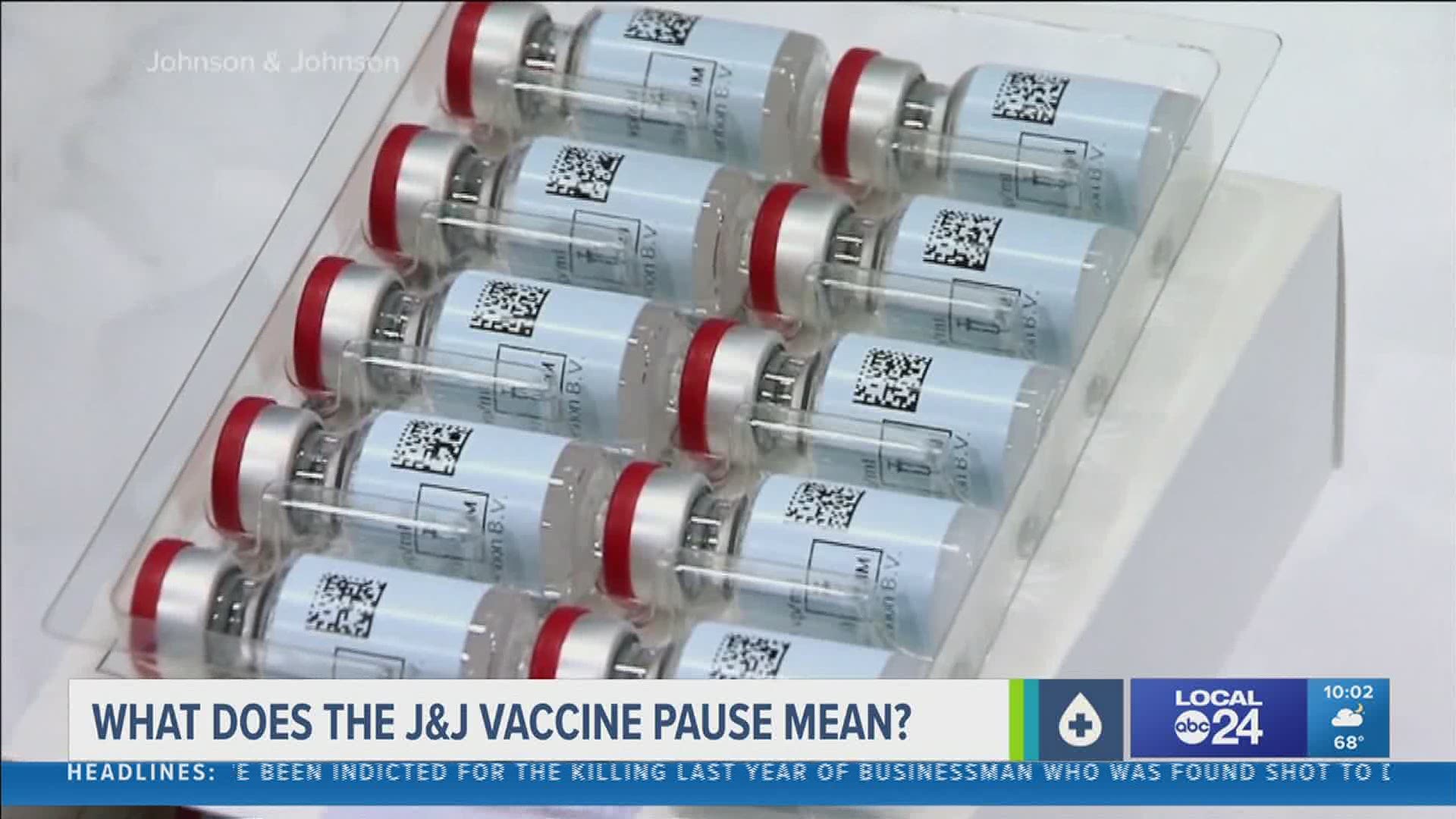MEMPHIS, Tenn. — The FDA and CDC are pausing the distribution of the Johnson & Johnson COVID-19 vaccine "out of caution." Reports found six of the nearly 7 million who took it had side effects of blood clots.
The first thing doctors want you to know is your chance of getting one of these rare blood clots is less than one in a million. They point out there are birth control prescriptions available right now where a woman's odds of clotting are 1 in 10,000.
Like infectious disease specialist Dr. Manoj Jain, health experts also acknowledge this news could create even more vaccine hesitancy. However, Jain said the benefits of getting the vaccine still outweigh the risks.
"What they need to know is the risk of infection is so significantly high at the present time," Jain said.
That may be true, but this revelation could also damage any momentum the vaccine rollout was gaining. Pastor Ricky Floyd of Pursuit of God Transformation Center said even knowing people's chances of blood clots are less than one in a million, it will still likely deter them from trusting any brand of vaccine.
"They either think I’ll be that one in a million or that the one in a million is not a reality that it’s probably worse than that," Floyd said.
Floyd has made it his mission to eliminate vaccine hesitancy, especially in marginalized communities. He hopes people will listen to the science and make the best decision for themselves and their loved ones.
"I’m not a salesman for taking the vaccine," Floyd said. "I’m a salesman for being responsible to your community and to your family."
Jain said we still have plenty of supply for the two-dose vaccines available made by Pfizer and Moderna, which have shown no evidence of severe side effects. He said the side effects from Covid are worse.
"You prevent the complications of blood clots, 10% or more have long term side effects, depression, brain fog, all of those things can be avoided if we are preventing it with the vaccine," Jain said.
Jain said you are likely fine if you received the Johnson & Johnson vaccine more than 30 days ago. Symptoms in the six cases made public Tuesday developed after 6 to 13 days.
"If you feel you’re having a severe headache, something that feels very different from usual, call your doctor up, let them know you had the Johnson & Johnson vaccine and then they would admit you and do what appropriately needs to be done," Jain said.

